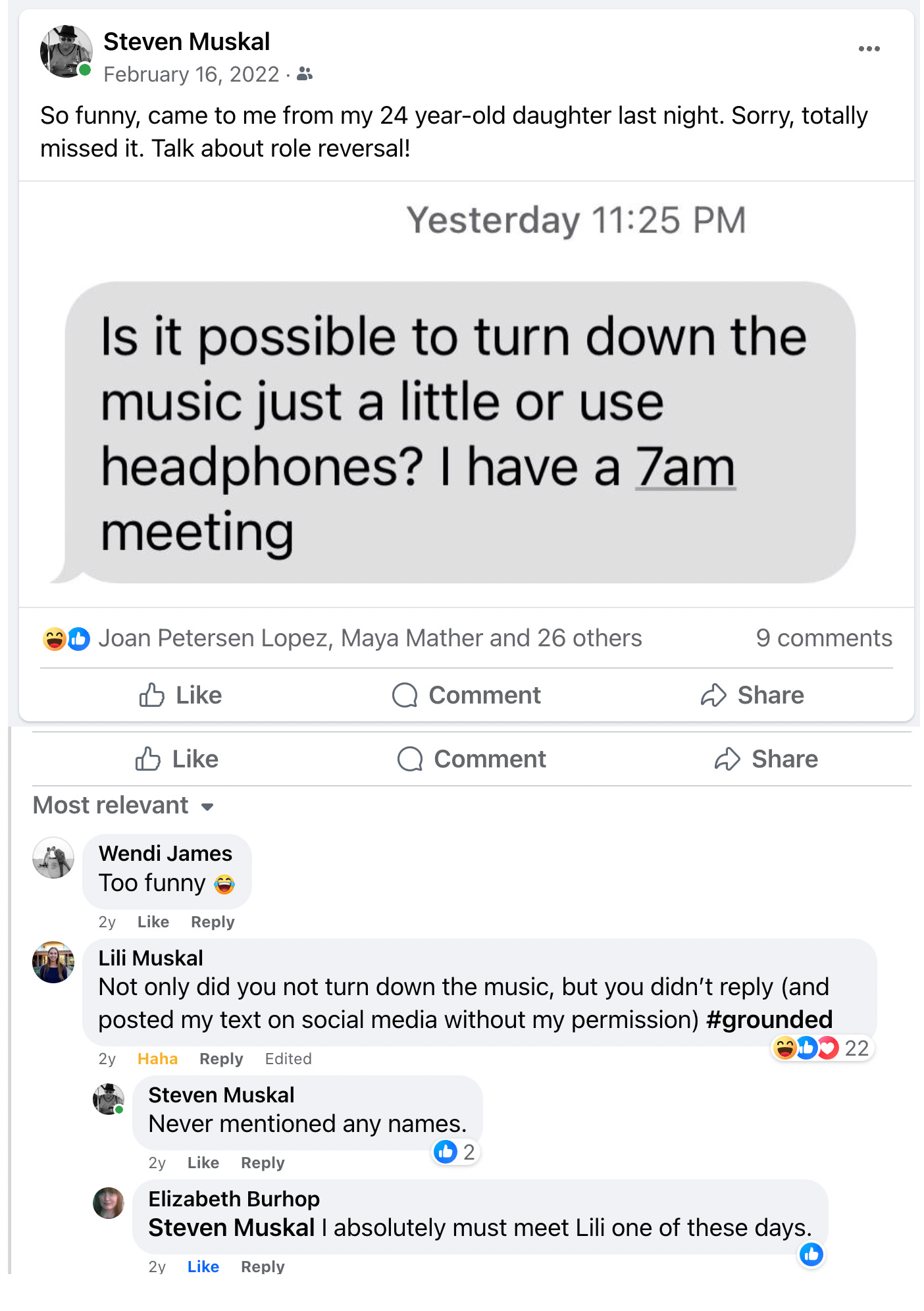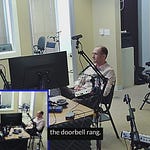Deep Dive Summary
Summary:
The leading video features Dr. Steven Muskal and his daughter Lili Muskal discussing their backgrounds, experiences, and the motivation behind a newsletter and podcast. Steve introduces himself as a PhD holder in chemistry with a diverse research background, including artificial intelligence, biochemistry, and molecular biology. He mentions his passion for conducting N of 1 experiments and sharing his knowledge through various platforms.
Lili Muskal, with a background in business and public health, joins the conversation. She highlights her educational journey at Claremont McKenna and Berkeley, and her professional experience in the pharmaceutical industry. The discussion touches on the importance of their kitchen table conversations about various topics like health, economics, business, and AI, and their desire to share these insights with a broader audience.
Steve and Lili explore the idea of creating a digital legacy using AI to preserve and share knowledge, despite acknowledging the privacy and ethical concerns associated with such technology. They draw parallels between traditional forms of knowledge preservation, like books, and modern AI capabilities.
Note: As our first run at recording a podcast, we did things a bit out of order. Below are sections worthy of highlight. About an hour after being into it, in her manner a fact way, Lili said “you didn’t introduce yourself or me!” So, we recorded the above introduction near the end of the recording session.
What better way to highlight my father daughter relationship with my daughter - Lili Muskal than with a post in February 2022. We revisited this early in the recording session:
Summary:
This segment features a light-hearted and reflective conversation between Steve and Lili about a memorable family moment. They discuss how Lili once texted Steve late at night, asking him to turn down his drumming because she had an early meeting the next day. Steve finds this amusing and points out the role reversal, as typically parents tell their children to keep the noise down, not the other way around. They both share a laugh over the situation and Steve notes that he was around 56 or 57 years old at the time, while Lili was 24.
Summary:
In this segment, Steve and Lili discuss the challenges the healthcare industry faces in promoting wellness amidst economic forces that thrive on poor health. Lili expresses frustration with the overwhelming influence of industries like food, tech, and gaming, which are often detrimental to public health. She questions how healthcare businesses can combat these forces.
Steve responds by pointing out that pharmaceutical companies benefit from chronic illnesses because they provide a steady stream of return customers. He recalls a project he worked on related to antibiotics, which was not prioritized because it was curative. This leads to a discussion about aligning policies to make money on wellness, considering chronic conditions, and the economic viability of such a model.
They also talk about the idea of countries subscribing to pharmaceutical companies for antibiotics as an emergency measure, suggesting it as a policy example that benefits health. However, they acknowledge the difficulty of countering economic forces that profit from poor health.
The conversation then shifts to the challenges of getting insurance coverage for effective but expensive cholesterol medications and the potential of GLP-1 drugs for improving various health outcomes, including type 2 diabetes, weight loss, cardiovascular health, and even cognitive decline. Despite their potential, insurance companies often focus on short-term cost savings due to the frequent switching of plans by consumers.
Lili mentions the frustration of studying health policy and encountering numerous hurdles within the healthcare system. They consider the idea of a health plan similar to a 401(k), where individuals have more control and continuity over their health investments, even if they change jobs. This could encourage insurance companies to offer better long-term health incentives.
Summary:
In this discussion, Steve and Lili reflect on the nature of his PhD studies and her MPH program and the flexibility of programs at Berkeley, which allow students to define their own problems and explore new areas. Steve emphasizes that a PhD teaches problem-solving and encourages venturing beyond one’s initial field of study, contrasting this with the rigidity of the current healthcare system.
Lili provides insight into how the U.S. healthcare system is driven by profit, with numerous intermediaries benefiting financially without necessarily improving health outcomes. She discusses how this system has led to significant paychecks for entities like electronic health record companies and pharmacy benefit managers, often without adding value to patient health.
The conversation shifts to whether Gen Z considers these systemic issues. Lili recounts her experience as a graduate student instructor at Berkeley, where undergraduates, upon learning about the healthcare system's history, would make bold statements about Medicare for all. She suggests that while some Gen Z individuals are aware, many remain theoretical and a bit pessimistic about the future.
Steve and Lili discuss the impact of significant events on Gen Z, such as Y2K, 9/11, the housing crisis, and the COVID-19 pandemic. Lili notes that these events, coupled with the constant noise of tech and social media, have led to increased anxiety and stress among her generation. She implies that these experiences have shaped Gen Z’s view of the world, making them more cautious and critical of the future.
Summary:
In this conversation, Steve and Lili discuss various topics related to generational perspectives on health, technology, and personal experiences. Lili reflects on how the significant events and loud presence of tech and social media have shaped Gen Z, leading to increased anxiety and stress. They joke about the term "snowflakes" and note how these experiences have influenced their worldview.
Steve shares his dependence on his 8 Sleep device for temperature regulation, which highlights the challenges of relying on technology for health and wellness. Lili comments on her own sleep quality and the benefits of good sleep practices.
The conversation then shifts to broader topics such as the influence of tech on mental health, the generational impact of constant connectivity, and the difference in upbringing between Steve's generation and Gen Z. They discuss the role of video games, the importance of physical activity, and the prevalence of health and fitness awareness among Lili's peers in San Francisco.
Steve and Lili also touch on the need for personalized healthcare and the potential for tech to empower individuals to manage their own health. Lili emphasizes the challenges of integrating health tech and wearables into the healthcare system and the importance of proactive health measures. They discuss the role of private businesses and government in advancing healthcare and the potential for policy to shape better incentives.
Steve reflects on the barriers to entering medical school, including the high cost and the outdated training methods. They agree on the need for modernizing medical education and utilizing advanced tools like AI to support medical students.
Throughout the discussion, they highlight the importance of managing personal health data, the challenges of the current healthcare system, and the need for individuals to take control of their wellness.
Summary:
In this wrap-up segment, Steve and Lili reflect on generational differences regarding sleep, health, and lifestyle habits. Steve talks about his generation's attitude towards sleep, where working long hours with minimal rest was seen as a badge of honor. He contrasts this with the current understanding of the importance of sleep, citing works like Matthew Walker's "Why We Sleep." They also discuss the demanding and sleep-deprived nature of medical residencies, attributing it to historical practices influenced by drug abuse.
The conversation shifts to how modern distractions like the internet affect people's time and well-being, emphasizing the difference in lifestyle when people were less connected. Steve highlights the role of dopamine in deriving pleasure from activities such as planning trips, suggesting that anticipation often provides more enjoyment than the events themselves.
They also touch on the changes in food quality over generations, noting how processed foods have become more prevalent. Lili mentions how documentaries like "Super Size Me" and "Food, Inc." influenced their family's eating habits, shifting away from fast food. Steve recalls past indulgences in fast food and high-sugar treats, reflecting on the impact of these choices on their health.
Steve mentions wearing a glucose monitor to track the impact of foods on his blood sugar levels, sharing an anecdote about how a favorite ice cream spiked his glucose levels for hours. Lili expresses concern about using a glucose monitor, fearing it might take away her enjoyment of dessert - “Maybe ignorance is bliss if you moderate yourself.”
For a music clip - the July 3rd party was a bit different this year. Rather than a mini-”Woodstock” of different bands, in keeping with the mix-n-matching I have been doing for the last couple years, we had mixes with groups of people typically not playing together. Normal mixes only have 1-3 singers, 1 bass, 1 rhythm guitar, 1 lead guitar, and possibly keys or a horn. Since the pool of musicians was approaching 50, I collaborated with ChatGPT to code a webapp that gave people the opportunity to check songs they would like to participate in and suggest songs to play. The app evolved over a week or two as we approached July-3, but ended up becoming a really powerful tool I’ll use for mixes in the future!
Since most all are in their own bands, this was a good opportunity to have fun with other musicians. Here is a sample with some of the "old" neighborhood friends (Maya, Dom, Pam, Tammy, Don, Tim, {and Jesse}), some of whom were in bands together over the years. Lots of "Stories" over the last 24 years indeed…









Father-Daughter Face-Off (part one): Comparing Gen-X and Gen-Z Perspectives